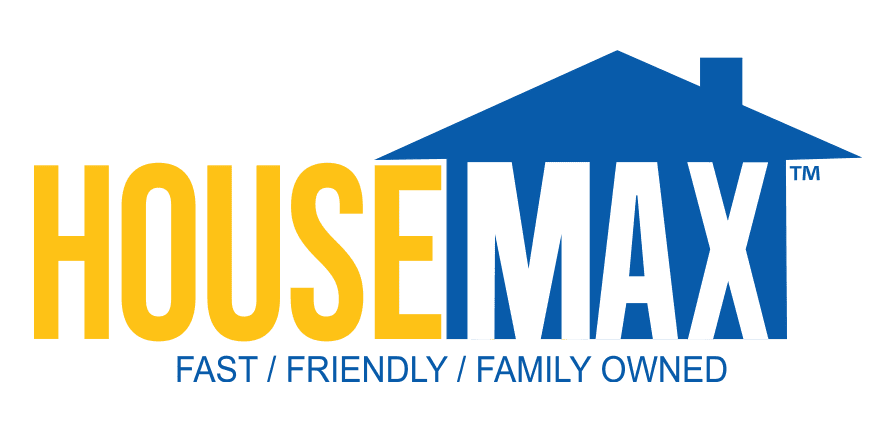Many homeowners feel stuck with their mortgages when they need to sell their houses. They worry about the rules, timing, and financial implications of selling before paying off their loans.
Moving to a new place or facing financial changes can make this situation even more stressful. The pressure builds when mortgage payments become harder to manage.
Homeowners often fear they must wait until the loan is fully paid off. Some even delay their plans because they don’t understand their options.
Yes, you can sell your house before paying off your mortgage. The sale proceeds will pay off your remaining loan balance at closing.
Your lender will work with your real estate agent to ensure a smooth transfer. The process follows standard procedures that protect both buyer and seller. This guide explains every step to sell your mortgaged home, from preparation to final closing.
Key Takeaways
- Yes, you can sell a house before paying off the mortgage; the mortgage is settled during closing.
- The closing agent manages paying off the lender using the sale proceeds.
- If the sale price is less than the mortgage balance, you may need to cover the difference.
- A clear title transfer requires full mortgage payoff and lender release of claim.
- Options like short sales or deed-in-lieu can help if the house has negative equity.
Can You Sell a House Before Paying Off the Mortgage? A Quick Answer

Yes, you can sell your house before paying off the mortgage. The mortgage balance must be paid during the closing process. This payment comes from the money you receive from selling your home.
The lender will need to release their claim on your property. This step allows for a clean title transfer to the new buyer. A mortgage release document proves that you no longer owe money on the house.
Your closing agent will handle the payoff amount with your lender. If the sale price covers your remaining mortgage, the process moves forward smoothly. You might need extra funds if your home sells for less than your mortgage balance.
The title can only transfer after the lender confirms full payment. New buyers want to ensure they receive clear ownership rights. The closing agent will verify all documents before finalizing the sale.
What Happens to Your Mortgage When You Sell?
Selling your home requires paying off your existing mortgage with the sale proceeds. Your lender must receive full payment to release their claim on your property. The remaining loan balance comes from your home’s sale money. Most banks require immediate payment when you sell your house.
The closing agent handles the mortgage payoff during the sale process. They will collect and transfer funds to your lender. If any issues arise, they can delay the closing.
Some mortgages offer transfer options to buyers, but this is uncommon today. You must confirm with your lender about transfer possibilities. If allowed, the buyer would take over your existing loan terms.
The property title must be clear of any mortgage liens before sale completion. Your lender will remove their lien after receiving full payment. A clean title transfer ensures smooth property ownership changes.
Options for Selling a Home with an Existing Mortgage

If you have equity, selling can cover your mortgage and leave you with profit. When you’re in negative equity, a short sale might be your best option, but it requires lender approval. Understanding these choices helps you move quickly and maximize your cash from the sale.
Selling When You Have Equity
Home equity gives homeowners flexible options when selling their property. A traditional sale lets you pay off the mortgage during closing. You can also choose a quick cash sale to avoid mortgage complications.
Short sales become an option if you owe more than your home’s current value. Your equity can help fund the purchase of your next home. Lenders will work with sellers who have substantial equity.
The selling process requires careful planning with your available equity. You must ensure the mortgage balance gets paid at closing time. Smart equity management will maximize your profits from the sale.
Different selling strategies affect how much money you keep after the sale. If you have significant equity, traditional sales often yield the highest returns. Cash buyers might offer lower prices but provide faster closing times.
Dealing with Negative Equity
Negative equity occurs when your home’s value falls below your remaining mortgage balance. A short sale offers one solution to negative equity problems. The lender must agree to accept less money than you owe. This option affects your credit score but prevents foreclosure.
Homeowners can transfer property ownership back to their lender through a deed-in-lieu arrangement. This process requires lender approval. Your mortgage debt would end after the transfer.
Refinancing might help if your lender provides special programs for underwater mortgages. You should check government assistance programs first. A financial advisor can explain which programs fit your situation.
Legal support matters when dealing with negative equity sales. A licensed real estate agent can guide you through state requirements. Working with professionals helps protect your interests during the process.
Using a Short Sale
A short sale occurs when you sell your home for less than what you owe on the mortgage. You need permission from your lender before starting this process. This option helps homeowners who cannot make their monthly payments.
The process brings several advantages to struggling homeowners. Your credit score will take less damage compared to foreclosure options. You can move forward without the burden of remaining mortgage debt. The bank may forgive the difference between sale price and loan balance.
Real estate agents play a crucial role in short sales. They must understand complex legal paperwork and banking requirements. Your agent should have experience handling short sale transactions. If chosen correctly, they can guide you through negotiations effectively.
Success depends on proper documentation and timing. You should gather all financial records before approaching the lender. The bank will review your hardship letter and current financial situation. These documents must clearly show why you cannot continue mortgage payments.
The Home Selling Process When You Have a Mortgage

When selling a home with a mortgage, you need to move quickly through preparation, pricing, and marketing to attract buyers fast. Once you accept an offer, the focus shifts to closing, where mortgage payoff and legal transfer of ownership happen seamlessly. Staying organized and working with licensed professionals ensures the process stays smooth and cash-ready.
Preparing Your Home for Sale
A well-planned home sale requires proper preparation before listing. Your first step should focus on making the property appealing to buyers. Professional home staging can showcase your home’s best features effectively.
The home inspection process identifies potential problems before listing your property. Fixing these issues early prevents delays during the sale. If major repairs arise, you should address them immediately.
Documentation plays a crucial role in smooth property transactions. Keep mortgage statements, tax records, and maintenance receipts organized. All property disclosures must be accurate and complete.
Regular maintenance helps attract serious buyers to your property. Clean windows, fresh paint, and trimmed lawns create positive first impressions. If you maintain curb appeal, potential buyers will feel more confident.
- Get professional home staging
- Complete property inspection
- Fix identified problems
- Gather important documents
- Maintain cleanliness daily
Setting the Right Price
Your home’s price must match current market conditions to attract buyers and secure a fair deal. Research nearby sales and similar houses to understand local pricing trends. A thorough market analysis will help determine your property’s actual value.
The wrong price can affect your selling success. If you price too high, potential buyers may ignore your listing. A low price might lead to financial losses when paying off your mortgage.
Data-driven pricing strategies work best in real estate sales. You should consider factors like neighborhood developments, market timing, and property condition. Smart pricing decisions can speed up your home sale.
A successful sale depends on transferring clear property title to buyers. Your mortgage must be paid off during the closing process. If you price correctly, the settlement will move forward smoothly.
Marketing Your Property
A strong marketing plan will help sell your property with a mortgage. Professional photos and staging create an appealing first impression. Social media and online listings reach potential buyers effectively.
Staging makes your home appear move-in ready for buyers. You should remove personal items and declutter all spaces. Professional stagers can transform rooms to highlight their best features.
Quality photos capture your property’s true appeal in listings. If you hire a real estate photographer, they will showcase your home’s best angles. Good lighting and wide shots help buyers visualize the space.
Property descriptions must be honest and highlight key selling points. Your listing should include accurate details about the home’s condition and features. Buyers appreciate clear information about room sizes and recent upgrades.
Open houses and digital ads expand your reach to serious buyers. You can target specific demographics through social platforms and real estate websites. If marketed correctly, your property will attract qualified buyers who can handle the mortgage.
Accepting an Offer
Sellers should check if the offer amount covers their existing mortgage balance. The buyer needs sufficient funds to handle closing costs and mortgage payoffs. You must respond to offers promptly to maintain momentum.
Your lender will provide exact payoff figures for the mortgage settlement. The title company needs these details to process the closing documents. If delays occur, updated payoff statements might be necessary.
Missouri laws mandate full mortgage payoff during property closing. Your real estate agent will guide you through required documentation. The buyer’s lender may need specific information about your existing loan.
Clear communication between all parties helps ensure a smooth transaction. The closing date should align with your mortgage payoff timeline. If problems arise, contact your broker immediately.
The Closing Process
The closing process concludes a home sale through document signing and ownership transfer. A closing agent manages the required paperwork and legal formalities. The buyer and seller must attend the final meeting to sign documents.
Licensed brokers handle the escrow procedures during closing. They verify the remaining mortgage balance on the property. The team ensures all financial details are accurate and complete.
The title company checks for any existing liens on the property. If liens exist, sellers must clear them before closing. The title transfer cannot proceed until all debts are settled.
Final steps include reviewing and signing the closing documents. The mortgage payoff amount gets confirmed with the lending bank. The escrow accounts transition to the new owner. The property title transfers once all steps are complete.
Paying Off Your Lender
You must pay your remaining mortgage balance to sell a home. The lender needs full payment to remove their legal claim. This amount includes the principal balance and any interest charges.
The closing agent manages the payment process during the sale. They will use money from your home sale proceeds. If extra fees exist, they must be settled before the transfer.
Your lender will issue a lien release after receiving the full payment. This document shows you no longer owe money on the property. The buyer can then receive a clear title to the home.
A proper mortgage payoff protects both the seller and buyer. If problems occur, an agent can help resolve payment issues. The sale cannot finish until the lender confirms full payment.
Get a Quick, Hassle-Free Cash Offer from House Max Today!
House Max buys houses directly with cash offers, making the selling process quick and simple. You won’t deal with real estate agents or complex negotiations. The company handles all paperwork and legal requirements.
Our team skips traditional property inspections and repair demands that slow down regular sales. If you accept the offer, closing can happen within days. The process remains transparent without hidden charges or fees.
You can choose when to complete the sale based on your moving timeline. House Max will work around your schedule for a smooth transition. The company’s local experts understand your market’s property values.
Contact House Max today to receive a custom cash offer for your property. If you need to sell quickly, this solution eliminates typical market delays. The straightforward process helps homeowners move forward without complications.

Hi, I’m Jason Jones, founder of House Max here in Kansas City. I’ve been in real estate for many years, starting in mortgages and later moving into investing and creative financing. Since 2012, I’ve been helping homeowners sell their houses quickly—whether they’re downsizing, relocating, or facing unexpected situations. Being born and raised in Kansas City gives me the local expertise to guide every transaction with integrity and care. My goal is always to make selling your house simple, fast, and stress-free.







